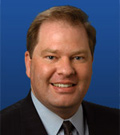During college I took several aeronautic ground classes along with actual flying lessons. Our instructors hammered safety and preparedness into our heads, both while in class and, especially, while flying. The reason: flying (and landing) can be dangerous if you don’t pay attention, or if you become complacent or think you are good. Our instructors made sure we understood that: 1) you can never stop being careful; 2) learning is forever, and 3) there is always room for improvement.
Additionally, our instructors made it their mission to drive home what they apparently believed to be the most important lesson about safety and preparedness in flying — a pilot is the most dangerous when he reaches the point at which he knows “everything.” When the pilot knows everything, has seen everything, and is as good as he is ever going to be (at least in his mind), bad things happen. What I found interesting is the point at which a pilot reaches this “know-it-all” point — between 300 and 500 hours of flying time. Pilots who reach this range of hours think (and fly like) they have seen it all and have learned all they need to know about flying. But in fact, and according to our instructors, these were the most dangerous pilots in the sky (to themselves and others).
New pilots hold tightly to and use all the checklists, make sure all the equipment is operational, plan their flight, file their plans, and concentrate while flying. Pilots with more than 500 hours of flying time return to this level of conscientiousness — because they realize there is more to know than they currently do. But the mildly experienced acted like they were too good and experienced to take these precautions.
Insurance Training
What does all of this about pilots have to do with insurance education and training?
Insurance trainers and educators often see this same “know-it-all” phenomenon in students with insurance industry experience equivalent to pilots with 300 to 500 hours — those with between six and 10 years of industry experience.
Insurance trainers and educators report that insurance practitioners with six to 10 years insurance experience think they already know everything and feel they can gain nothing from insurance training. The reason: in their mind they have seen it all, experienced it all, and don’t need someone droning on about insurance and risk management, or whatever. This is best exemplified by an individual I know within this experience category who refers to himself as the “Titan of Insurance.”
Conversely, students with 20 or more years of insurance experience greatly desire and see the importance of in-depth education and training because they realize how much there really is to know. “Newbies” (one to five years insurance experience) crave all the information they can get as they are not completely sure of their skills. Insurance professionals with 11 to 19 years of experience once again realize they don’t know as much as they thought and begin looking for education and training that allow them to progress in their insurance careers.
With such great disparity between the education and training desires among these experience levels there is no option but to conclude that it’s not the training, it’s the people attending training. Remember, according to John Wooden, it’s what you learn after you know everything that matters.
So, to my “6 to 10” friends, we trainers and educators recommend that you quickly realize there is a lot more to learn about insurance than your limited experience and huge ego allow. If you ignore this advice, you may be the most dangerous insurance practitioners in the field. And as with those 300-to-500 hour pilots, bad things can and will happen — to you and others.
Why do we care? Because we know you can be great insurance professionals provided you don’t crash and burn as a result of overconfidence before you have that opportunity.
Topics Training Development
Was this article valuable?
Here are more articles you may enjoy.


 Zurich Insurance Profit Beats Estimates as CEO Eyes Beazley
Zurich Insurance Profit Beats Estimates as CEO Eyes Beazley  Fla. Commissioner Offers Major Changes to Citizens’ Commercial Clearinghouse Plan
Fla. Commissioner Offers Major Changes to Citizens’ Commercial Clearinghouse Plan  Insurance Broker Stocks Sink as AI App Sparks Disruption Fears
Insurance Broker Stocks Sink as AI App Sparks Disruption Fears  Munich Re Unit to Cut 1,000 Positions as AI Takes Over Jobs
Munich Re Unit to Cut 1,000 Positions as AI Takes Over Jobs 



